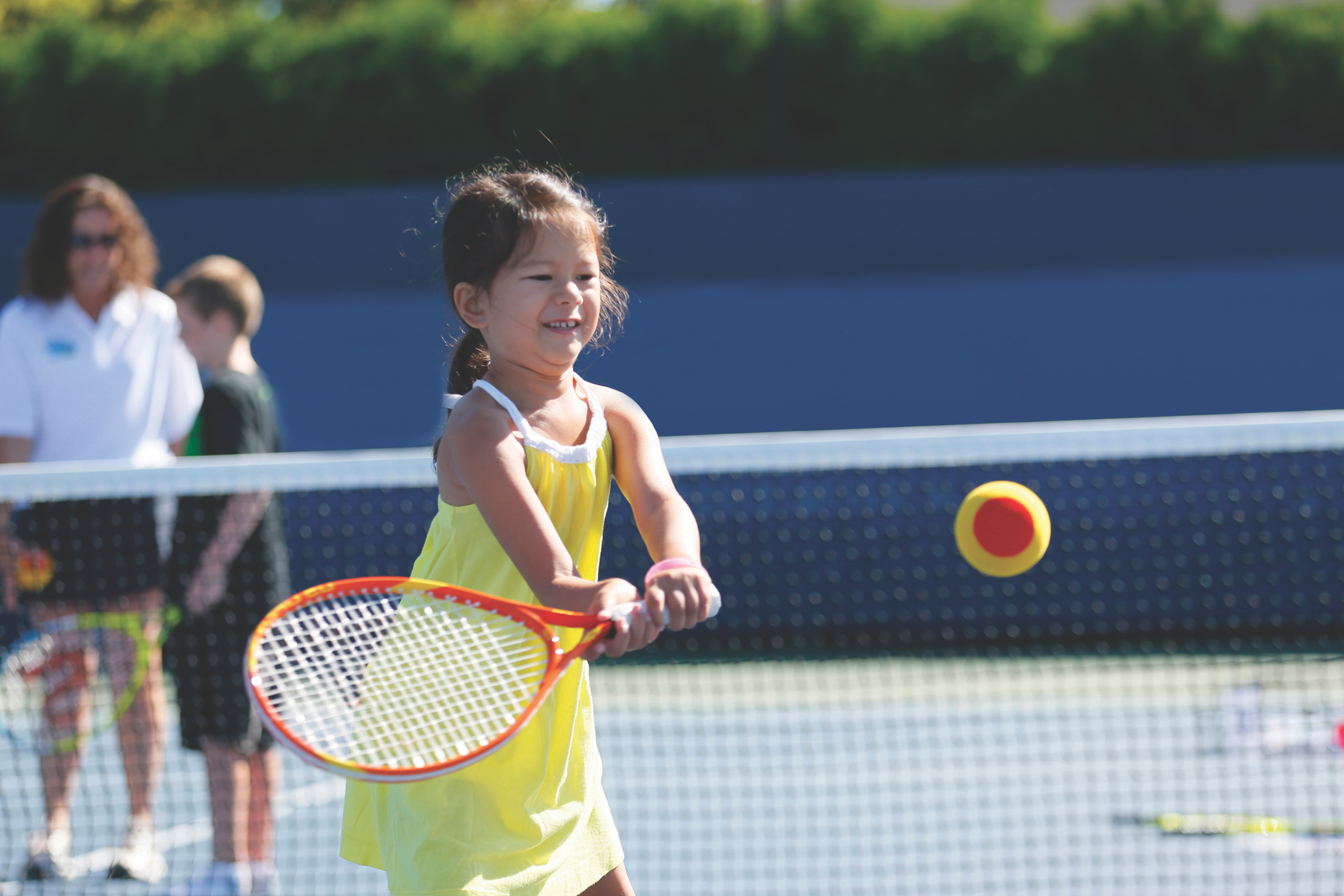Parents and young athletes today are bombarded with the message that high doses of one sport at an early age is the only pathway to athletic stardom. This narrative demands that children choose only one sport, characterized by high levels of deliberate and focused practice (rather than play), and often focus on performance at ages as early as 6 years old. However, early sport specialization puts kids at risk of higher rates of injury and increased psychological stress, even causing them to prematurely “retire” from sports at a young age. Sport sampling mitigates those risks and helps kids stay active longer. Research has shown that kids who sample sports have increased physical capacity and motor skills, an increased ability to translate those skills to other sports, stay in sports longer, and are more likely to build social emotional skills through sports.
From Sport for All, Play for Life:
Debunking the myth of early specialization presents a real opportunity for elite and community sport organizations to align behind a common experience for kids through age 12. It buys oxygen for the notion that the development of physical literacy should be the priority, fostered by sport sampling. But that commitment needs to be made to all children, with special efforts designed to reach the sedentary and those who may not be aware of, or have the resources to afford, activities outside the mainstream. While team sports should embrace all, individual sports can also be more welcoming than team cultures to some kids, LGBTQ or otherwise. Grow the menu of sport options, create better connections to vulnerable populations, and more athletes-for-life will emerge.
Benefits of Sampling a Variety of sports
It’s better to try a few than to focus on one early.
(Data: University of Florida Sport Policy & Research Collaborative)
IDEAS
“Allow your kids to explore as many activities as possible, which will help them explore who they really are.”
Cassidy Hubbarth, ESPN broadcaster
RESOURCES
Find Complementary sportS
Focused on one sport? Our tool developed with the Hospital for Special Surgery offers recommendations on other sports to try, for skill development and overall health.
Project Play Checklist to Encourage Sport Sampling
Use these nine questions to help your organization consider how you can promote sport sampling.
COMMITMENTS MADE BY NATIONAL SPORT ORGANIZATIONS
Learn about the ways in which major organizations say they encourage sport sampling.
HSS On-Demand Resources
Hospital for Special Surgery’s Sports Medicine Institute developed coach, parent, and P.E. teacher resources to encourage physical literacy, motor development, and reduce the risk of injury.
Active for Life
Resources for parents, as well as lesson plans, activities, and videos to help kids develop fundamental movement skills.
YOUTH SPORTS BENEFITS INFOGRAPHICS
click to expand
click to expand
SUMMIT SESSIONS
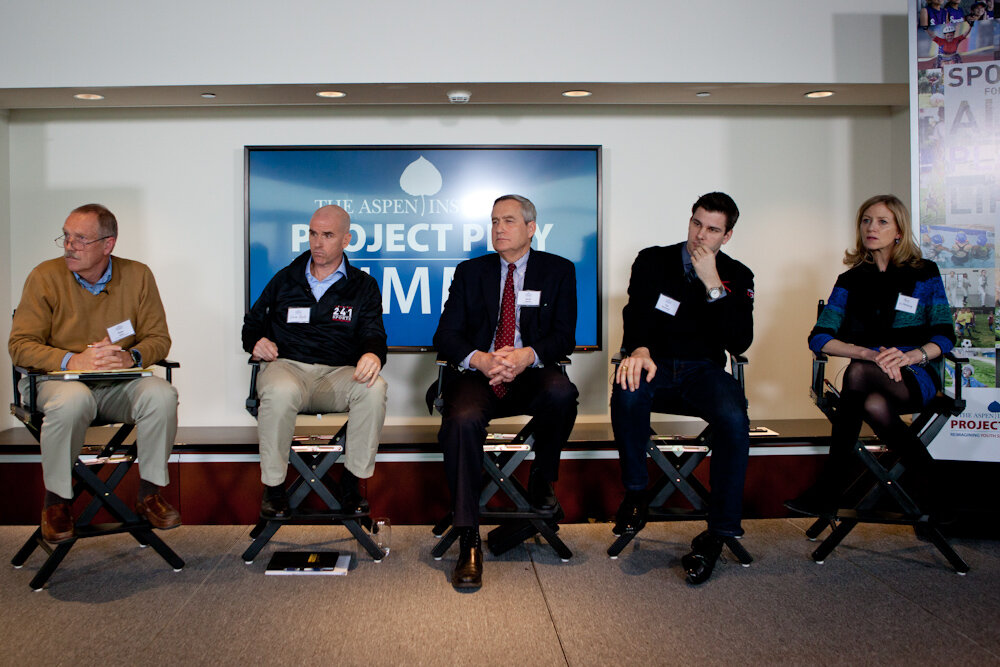
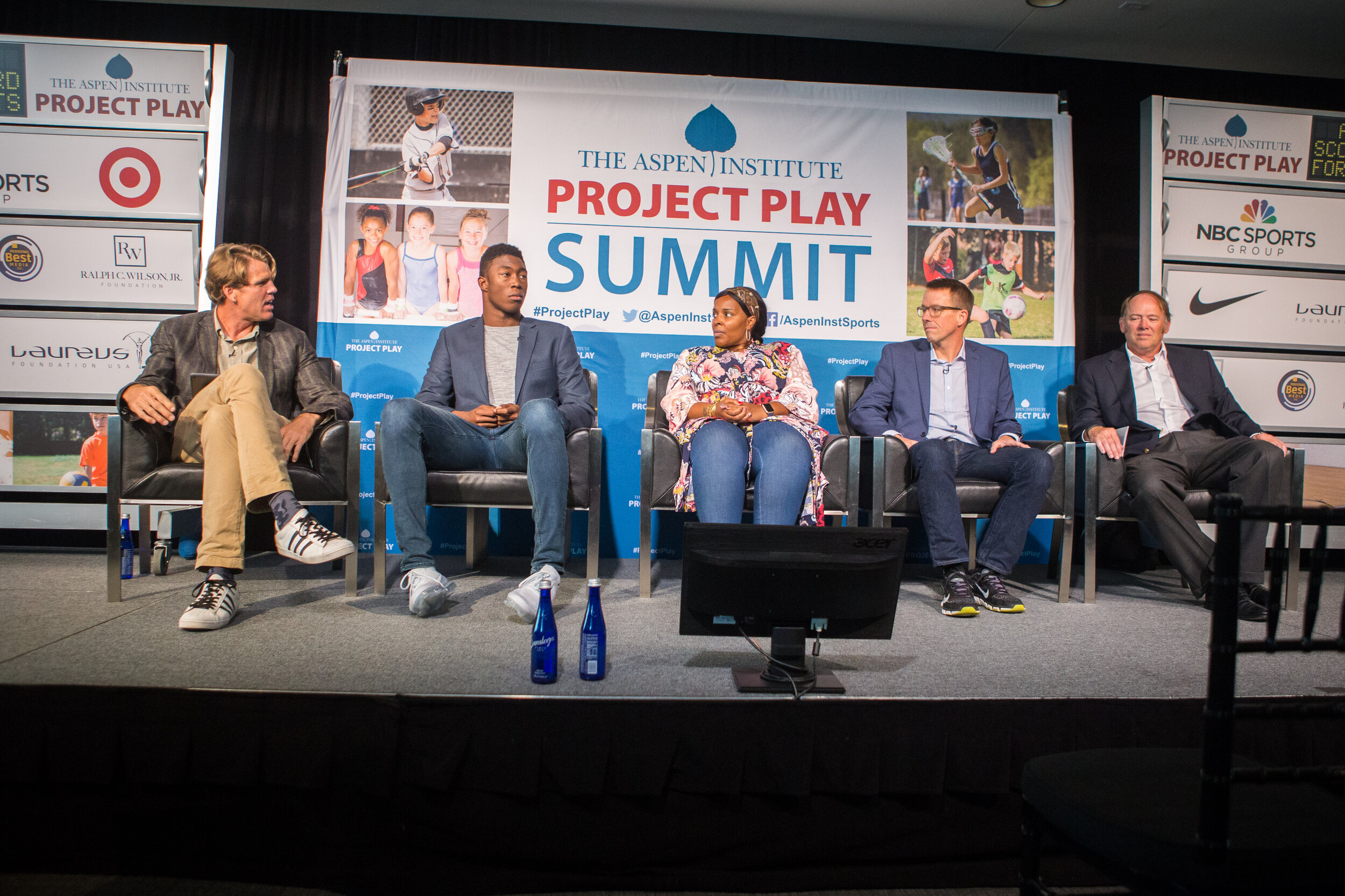
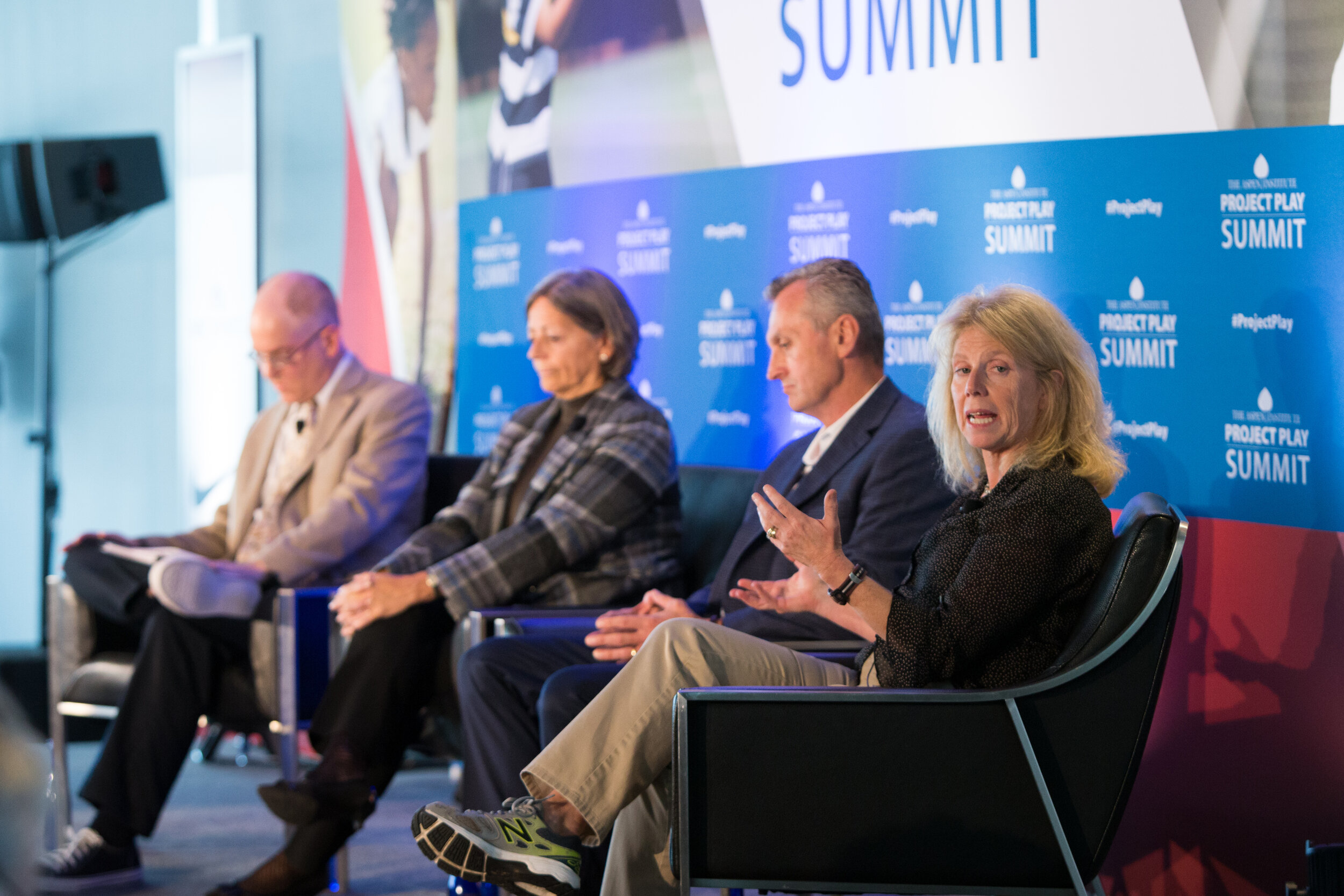
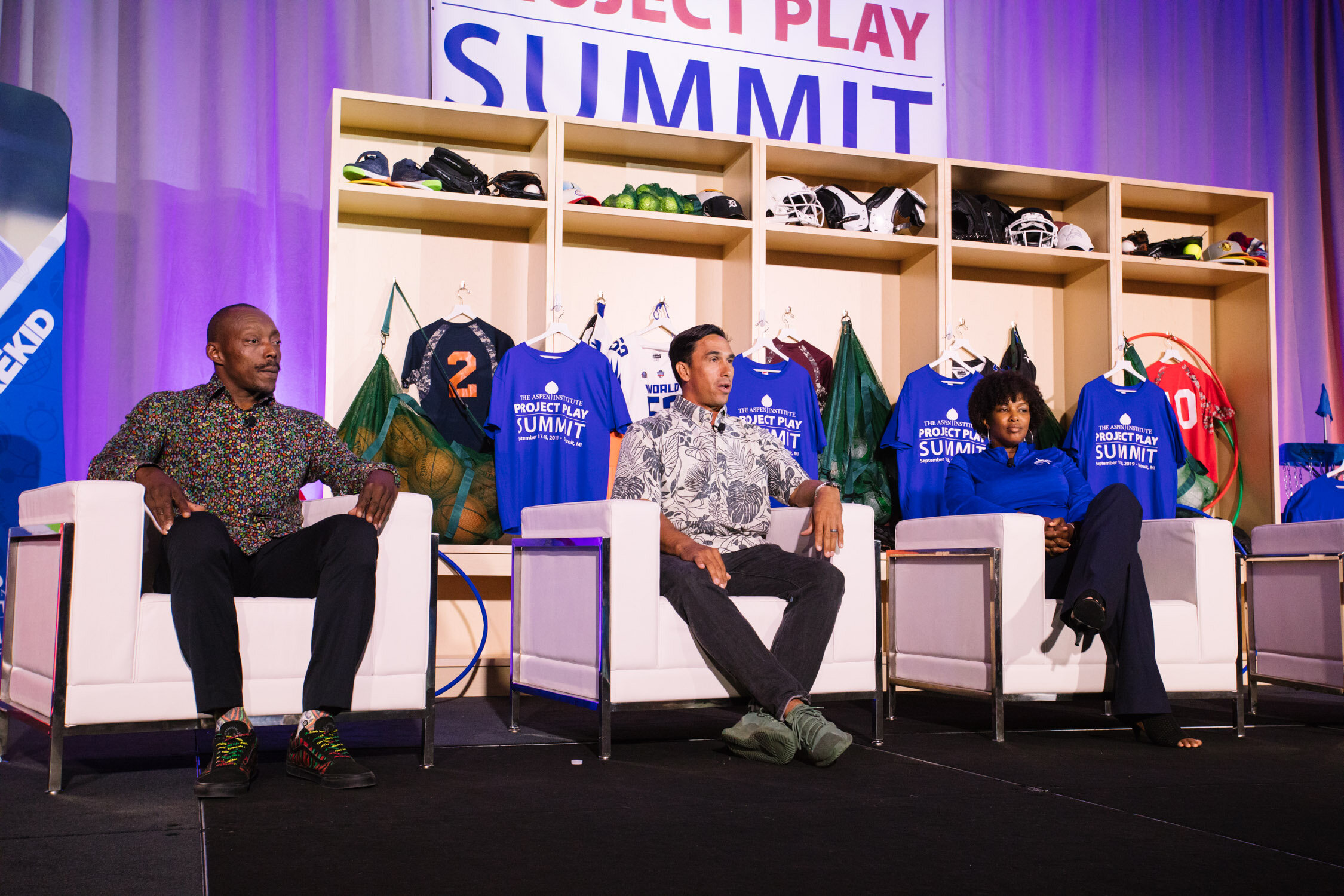
“My earliest memories were just playing, all kinds of different sports. I didn't compete in track until high school. I'm really grateful for those early experiences, a little bit of everything to find out what I was good at.”
Allyson Felix, seven-time Olympic gold medalist
FINDING SUCCESS
One of the more novel summer camps is 2-4-1 Sports in Connecticut. Its tagline is, “Life is too short for just one sport.” Campers learn several sports of their choosing. The camp was created by parents — both former college athletes — after their young daughter’s invitation to join a travel soccer team was rescinded because she didn’t want to quit lacrosse to make the multi-season commitment to soccer. Readers of Hartford Magazine voted the camp the state’s best in 2012; the founders’ daughter went on to play lacrosse in college. Founder Steve Boyle shared lessons learned at the 2015 Project Play Summit (WATCH).
For more ideas, read about the commitments made by Project Play Champion organizations here.

